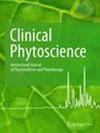Delayed prescription of antibiotics and the capabilities of herbal medicine when used in respiratory infections
引用次数: 0
Abstract
Excessive and improper use of antibiotics in respiratory infections is still an urgent issue. In most cases of ARS and AT, antibiotics can be considered excessive treatment, since they are a completely inappropriate solution for viral infections. An important issue is negative changes to the microbiome in the patient’s body, which cause a negative impact on health, and abnormal changes can last longer and be more severe than the disease itself. Misuse of antibiotics can be harmful, especially in children, because the long-term effects of antibiotics on the macroorganism and microbiome can cause the disease to recur in adulthood. Sinupret® in the strategy of delayed prescription of antibiotics in ARS patients as part of a controlled study helps reduce prescription of antibacterials by 1.81 times and by 15.5 times (53% to 3.4%) versus statistics. Imupret® in patients with severe acute tonsillitis when employing the approach of delayed antibiotics prescription reduces the need for antibacterial therapy by 43.7% or 2.3 times, and by 11 times (72% to 10.1%) versus the average statistical level of prescription. Unlike antibiotics, herbal medicines positively affect the patient’s microbiome and have a favourable safety profile. It is imperative to increase knowledge and awareness, as well as provide appropriate training and communication strategies among physicians to prevent overuse and misuse of antibiotics. Herbal medicinal products BNO1016 (Sinupret®) and BNO1030 (Imupret®) can be considered as an alternative to antibiotics for the treatment of uncomplicated forms of acute rhinosinusitis and acute tonsillitis. Evidence shows that herbal medicines are effective and have a favourable safety profile. However, herbal medicinal products cannot replace antibiotics in all the cases, so delayed prescription of antibiotics with pre-treatment using herbal products can help reduce excessive and unjustified use of antibiotics.延迟抗生素处方以及在呼吸道感染中使用草药的能力
在呼吸道感染中过度和不当使用抗生素仍然是一个亟待解决的问题。在大多数 ARS 和 AT 病例中,抗生素可被视为过度治疗,因为抗生素是完全不适合病毒感染的解决方案。一个重要的问题是,患者体内的微生物群发生了负面变化,对健康造成了负面影响,而且异常变化可能比疾病本身持续时间更长、更严重。滥用抗生素会造成危害,尤其是对儿童,因为抗生素对大分子和微生物组的长期影响会导致疾病在成年后复发。作为一项对照研究的一部分,Sinupret®在ARS患者中采用延迟抗生素处方的策略,有助于减少抗菌药处方1.81倍,比统计数据减少15.5倍(53%到3.4%)。对严重急性扁桃体炎患者采用延迟抗生素处方的 Imupret® 可使抗菌治疗的需求减少 43.7% 或 2.3 倍,与平均统计处方水平相比减少 11 倍(72% 至 10.1%)。与抗生素不同,中草药会对患者的微生物群产生积极影响,并且具有良好的安全性。当务之急是提高医生的知识和意识,并提供适当的培训和沟通策略,以防止抗生素的过度使用和滥用。草药产品BNO1016(Sinupret®)和BNO1030(Imupret®)可作为抗生素的替代品,用于治疗无并发症的急性鼻炎和急性扁桃体炎。有证据表明,草药疗效好,安全性高。然而,草药产品不能在所有情况下替代抗生素,因此,延迟开具抗生素处方并预先使用草药产品进行治疗,有助于减少抗生素的过度和不合理使用。
本文章由计算机程序翻译,如有差异,请以英文原文为准。
求助全文
约1分钟内获得全文
求助全文
来源期刊
自引率
0.00%
发文量
18
审稿时长
13 weeks
期刊介绍:
Clinical Phytoscience is an international, peer-reviewed, interdisciplinary, and open access journal publishing high quality research articles on clinical evidence and use of medicinal plants in the development of efficient and well tolerated phytotherapy. Clinical Phytoscience focuses on phytotherapy, looking at proof of concept, efficacy and safety, to be established “at eye level” compared to pharmacotherapy. The emphasis lies on application oriented topics (efficacy and safety of phytotherapy in a specific indication, including its need and acceptance by the patient). The scientific results published in the journal should contribute to the recovery and maintenance of human health by phytotherapy. Clinical Phytoscience will publish high-quality evidence-based clinical studies and relevant pharmacological studies. Key areas of interest are: -Upper and lower airways, ENT and pneumology -Gynecology -Urology -Nephrology Pediatrics -Intestinal tract -Hepatology -Diabetes/metabolic Syndrome -Immunology and microbiology -Hygiene -Analytics

 求助内容:
求助内容: 应助结果提醒方式:
应助结果提醒方式:


